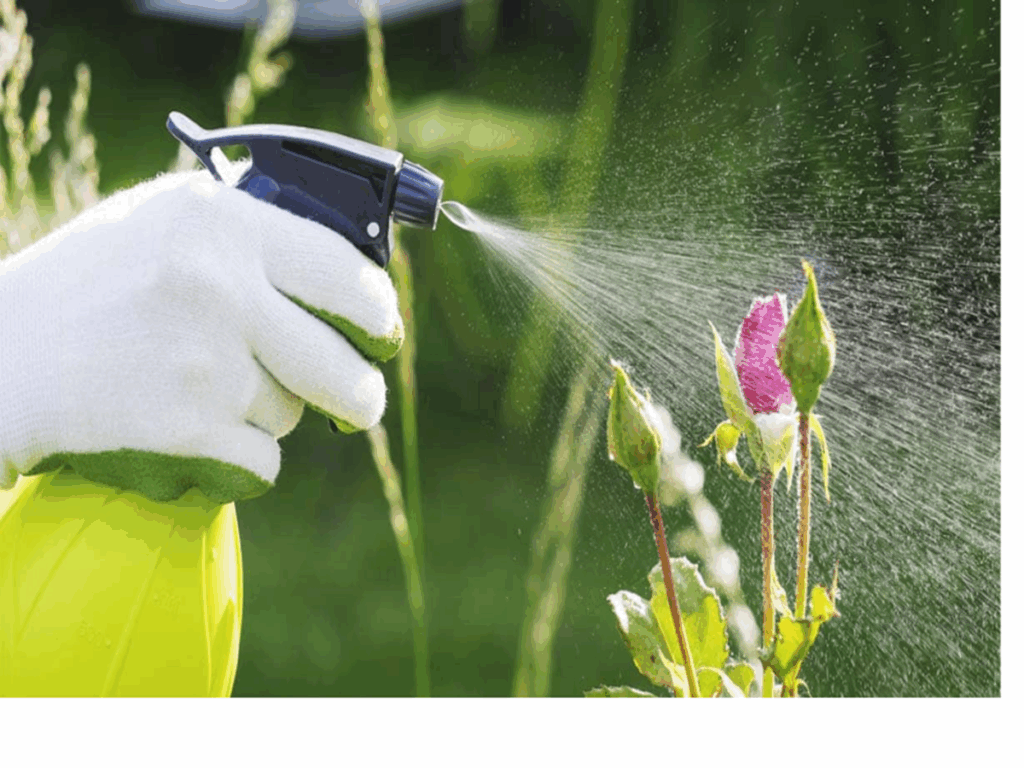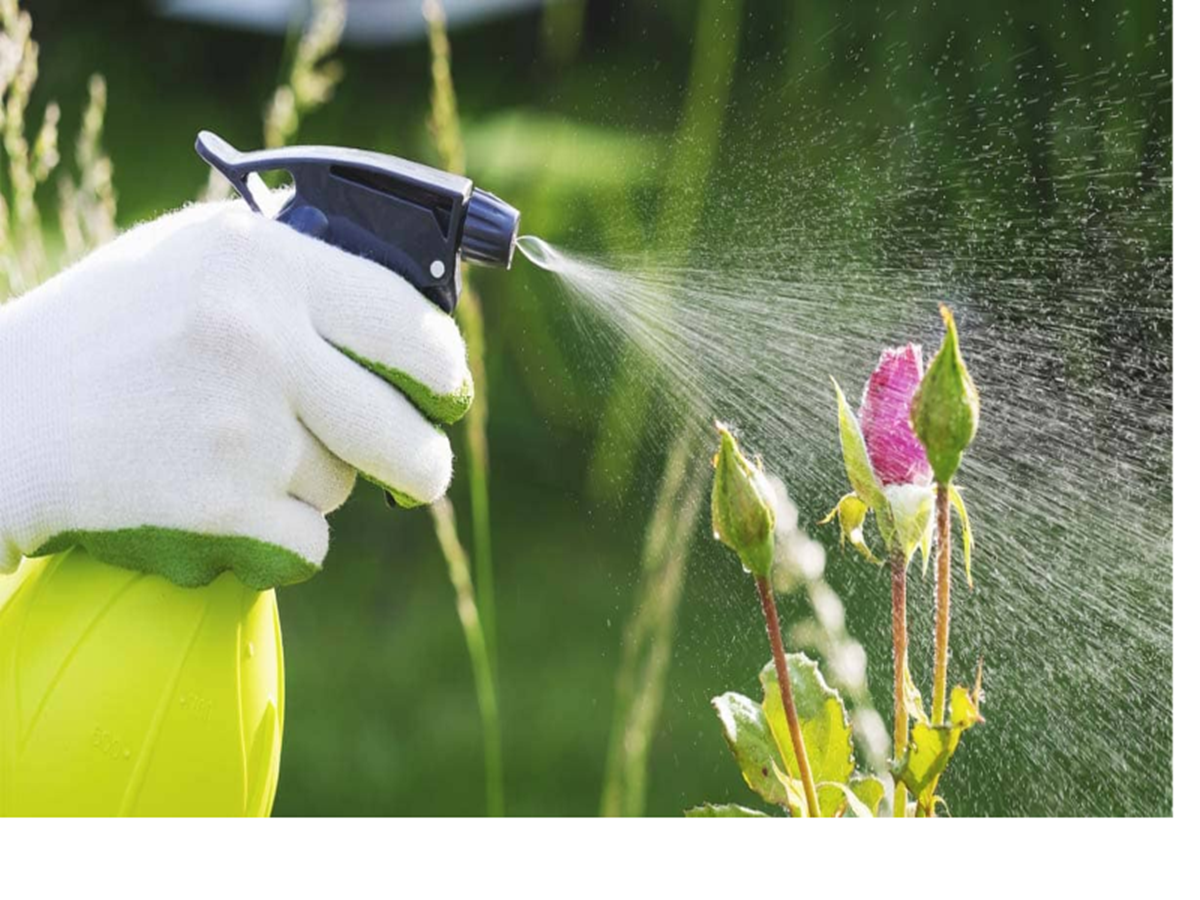
The Ultimate Guide to Organic Pesticides for Your Garden
Maintaining a healthy and thriving garden often requires battling pests. While conventional pesticides offer a quick solution, they can introduce harmful chemicals into your soil, plants, and potentially, your food. This is where organic pesticides come in, providing a safer and more sustainable approach to pest control. This comprehensive guide will delve into the world of organic pesticides, exploring their benefits, types, application methods, and how to choose the right one for your garden.
Why Choose Organic Pesticides?
The appeal of organic pesticides lies in their natural composition. Unlike synthetic pesticides, which are often derived from petroleum and other chemicals, organic pesticides are made from naturally occurring substances. This translates into several key advantages:
- Reduced Environmental Impact: Organic pesticides are less likely to persist in the environment, minimizing their impact on beneficial insects, wildlife, and water sources.
- Safer for Humans and Pets: With lower toxicity levels, organic pesticides pose less risk to human health and the well-being of pets that may roam your garden.
- Promotes Biodiversity: By avoiding broad-spectrum chemicals, organic pesticides help maintain a healthy ecosystem in your garden, encouraging a diverse range of beneficial insects and pollinators.
- Sustainable Gardening: Using organic pesticides aligns with the principles of sustainable gardening, fostering a healthy and balanced environment for your plants to flourish.
Types of Organic Pesticides
The market offers a wide array of organic pesticides, each with its unique mode of action and target pests. Understanding the different types is crucial for selecting the most effective solution for your specific needs.
Botanical Pesticides
Derived from plants, botanical pesticides are among the most popular organic pesticide options. They often contain natural toxins that disrupt the nervous system or other vital functions of insects.
- Neem Oil: Extracted from the neem tree, neem oil is a broad-spectrum insecticide, fungicide, and miticide. It disrupts insect growth and feeding, making it effective against aphids, whiteflies, spider mites, and other common garden pests.
- Pyrethrum: Derived from chrysanthemum flowers, pyrethrum is a fast-acting insecticide that paralyzes insects on contact. It’s effective against a wide range of pests, but it can also be harmful to beneficial insects, so use it judiciously.
- Spinosad: Fermented from a soil bacterium, spinosad is effective against caterpillars, thrips, leafminers, and other chewing and sucking insects. It has a relatively low impact on beneficial insects when used as directed.
Microbial Pesticides
These organic pesticides utilize beneficial microorganisms, such as bacteria, fungi, or viruses, to control pests. They are often highly specific, targeting only certain types of insects.
- Bacillus thuringiensis (Bt): Bt is a bacterium that produces a toxin that is lethal to caterpillars. Different strains of Bt are effective against different types of caterpillars, so it’s important to choose the right strain for your target pest.
- Beauveria bassiana: This fungus infects and kills a wide range of insects, including aphids, whiteflies, thrips, and beetles. It’s often used as a soil drench or foliar spray.
Insecticidal Soaps
Insecticidal soaps are made from potassium salts of fatty acids. They work by disrupting the cell membranes of insects, causing them to dehydrate and die. They are effective against soft-bodied insects, such as aphids, whiteflies, spider mites, and mealybugs.
Horticultural Oils
Horticultural oils, also known as dormant oils or superior oils, are highly refined mineral oils that suffocate insects and their eggs. They are effective against a wide range of pests, including aphids, scale, spider mites, and whiteflies. Apply during the dormant season or early morning/late evening to avoid scorching foliage.
Diatomaceous Earth (DE)
Diatomaceous earth is a powder made from the fossilized remains of diatoms, a type of algae. It works by scratching the outer layer of insects, causing them to dehydrate and die. It’s effective against a wide range of crawling insects, such as ants, slugs, and snails. Use food-grade DE for garden applications.
Applying Organic Pesticides Effectively
To maximize the effectiveness of organic pesticides, it’s crucial to apply them correctly. Here are some key tips:
- Identify the Pest: Before applying any pesticide, accurately identify the pest you are targeting. This will help you choose the most effective organic pesticide and avoid harming beneficial insects.
- Read the Label: Always read and follow the label instructions carefully. The label will provide information on the proper application rate, timing, and safety precautions.
- Apply in the Early Morning or Late Evening: Avoid applying organic pesticides during the heat of the day, as this can scorch foliage. The early morning or late evening is the best time to apply, when temperatures are cooler and the sun is not as intense.
- Spray Thoroughly: Ensure that you spray all parts of the plant, including the undersides of leaves, where many pests like to hide.
- Reapply as Needed: Organic pesticides often need to be reapplied more frequently than synthetic pesticides, as they break down more quickly. Check the label for recommended reapplication intervals.
Making Your Own Organic Pesticides
For the truly eco-conscious gardener, creating your own organic pesticides can be a rewarding experience. Many simple recipes can be made using common household ingredients.
Garlic Spray
Garlic has natural insecticidal properties. To make garlic spray, crush several cloves of garlic and soak them in water for 24 hours. Strain the mixture and add a few drops of dish soap before spraying on affected plants.
Pepper Spray
Hot peppers contain capsaicin, which is irritating to many insects. To make pepper spray, blend hot peppers with water and strain the mixture. Dilute the concentrate with water and add a few drops of dish soap before spraying on affected plants.
Dish Soap Spray
A simple solution of dish soap and water can be effective against soft-bodied insects. Mix 1-2 teaspoons of dish soap per gallon of water and spray on affected plants. Be sure to test on a small area first to ensure that it doesn’t damage the foliage.
Choosing the Right Organic Pesticide
Selecting the right organic pesticide depends on several factors, including the type of pest, the plant being treated, and your personal preferences. Consider the following when making your decision:
- Target Pest: Identify the specific pest you are trying to control. Some organic pesticides are more effective against certain pests than others.
- Plant Sensitivity: Some plants are more sensitive to certain organic pesticides than others. Always test on a small area first to ensure that it doesn’t damage the foliage.
- Environmental Impact: Consider the environmental impact of the organic pesticide. Some organic pesticides can be harmful to beneficial insects, so choose carefully.
- Personal Preferences: Consider your personal preferences. Some gardeners prefer to use homemade organic pesticides, while others prefer to purchase commercially available products.
Preventing Pest Problems in the First Place
While organic pesticides are a valuable tool for pest control, preventing pest problems in the first place is always the best approach. Here are some tips for creating a pest-resistant garden:
- Healthy Soil: Healthy soil is the foundation of a healthy garden. Amend your soil with compost and other organic matter to improve its fertility and drainage.
- Crop Rotation: Rotate your crops each year to prevent pests from building up in the soil.
- Companion Planting: Plant certain plants together that repel pests or attract beneficial insects. [See also: Companion Planting Guide]
- Water Properly: Water your plants properly to avoid stressing them, which can make them more susceptible to pests.
- Remove Debris: Remove dead leaves and other debris from your garden to eliminate hiding places for pests.
Conclusion
Organic pesticides offer a safe and sustainable way to control pests in your garden. By understanding the different types of organic pesticides, applying them correctly, and taking steps to prevent pest problems in the first place, you can create a healthy and thriving garden without harming the environment. Embrace the power of nature and enjoy the fruits (and vegetables!) of your labor.

